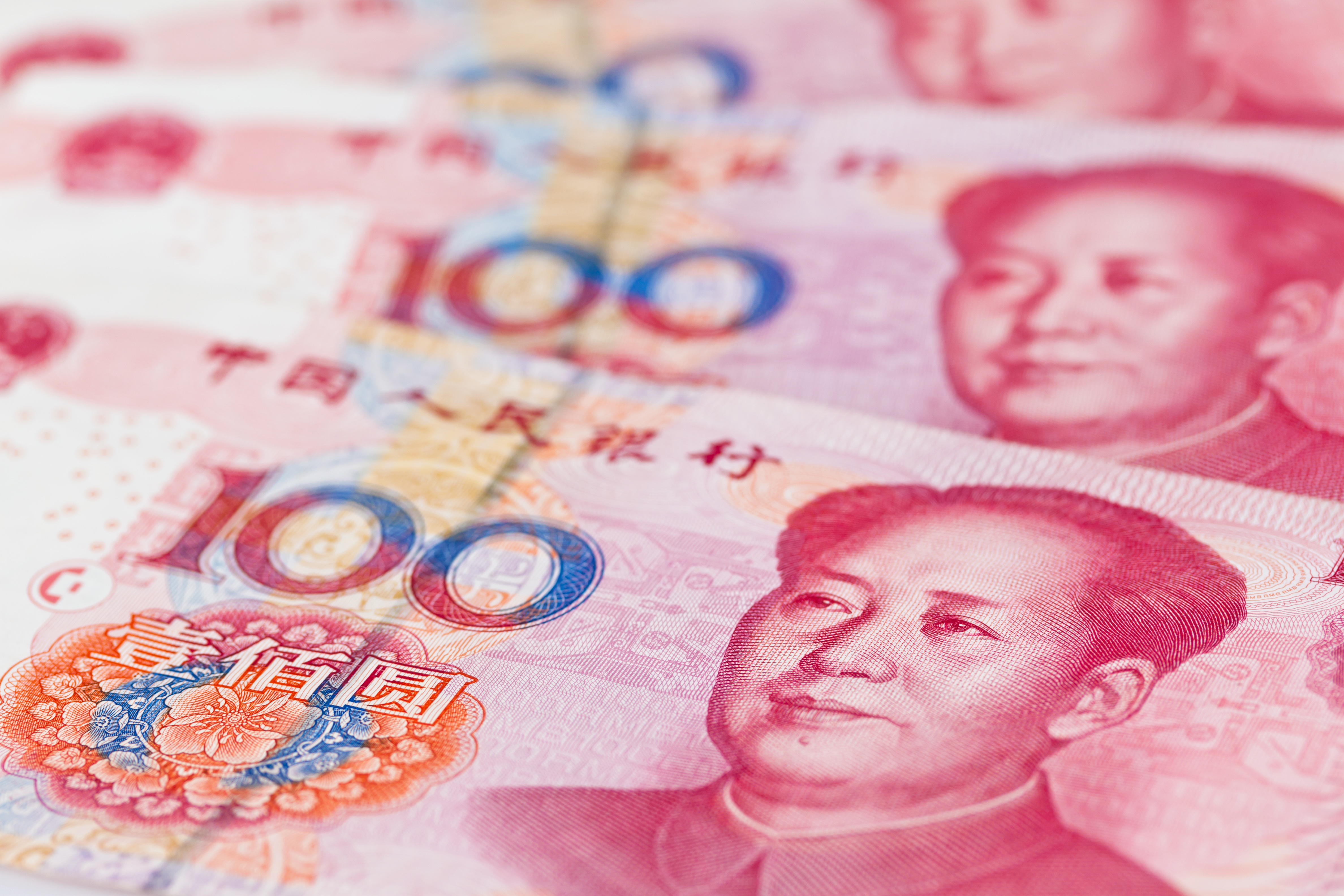
Chinese yuan
In the 13th Five Year Plan, the Chinese central government outlined several strategic objectives, such as food and energy security, the alleviation of poverty, and green growth through renewable energy development. Outbound foreign investment is an essential channel through which these social policies have been achieved. Likewise, foreign direct investment has allowed China to expand its international influence: capital injection, resource development, and infrastructure expansion are the hallmarks of Chinese diplomacy, and are the vehicles by which China exerts influence. This strategy has proved particularly effective in Latin America and Africa, where American influence is waning. However, in recent years Chinese firms have become particularly active in the Global North, and have begun to target technology and industrial sectors in North America.
The majority of Chinese outbound investment largely targets resource extraction industries, particularly oil and gas extraction and mineral mining: as of 2015, CSIS reports that Canada is the world´s third largest destination for Chinese foreign investment, the majority of which is focused in the oil and gas industry. The China Institute at the University of Alberta reports that in 2016, new Chinese investment in Canada totaled CA$7.5 billion, and that cumulative Chinese investment in Canada, as of September 2017 equals CA$79 billion. 70% of this investment comes from state-owned enterprises, while 65% of overall Chinese investment targets the energy sector. The significance of SOE investment in Canada is, in part, due to several large acquisitions: the 2012 Nexen takeover by CNOOC for CA$20 billion, as well as a 9% stake in Syncrude China Petrochemical Corporation for CA$4.8 billion in 2010. The dominance of SOE investment in general, as well as these large and high-profile acquisitions suggest that Chinese investment in Canada primarily serves to expand and stabilize China`s access to energy resources.
While SOE investment remains significant, the relative share of private sector investment has grown quickly, as has Chinese investment in sectors outside of energy and resource extraction. In particular, Chinese investment in the commercial real estate and entertainment industry, as well as the biotechnology and industrial/electronic equipment industries has increased in recent years: cumulative investment in technology sectors totals CA$1.7 billion, and is almost exclusively private industry-based. Likewise, commercial real estate investment has grown to CA$5.8 billion, 75% of which is investment by private corporations. Chinese engagement in these industries will broaden China's economic development, but is also likely to expand China's global influence in North America, and Canada more specifically.
China's expansion into technology industries in Canada has not been without controversy: in particular, the sale of Norsat International, a Vancouver-based satellite communications company, to Hytera Communications, a Chinese telecom company from Shenzhen, closed on July 20, 2017 for CAD $85.2 million, caused significant pushback from some Canadian observers. In the past, Hytera was accused of stealing patents from industry competitors such as Motorola, as well as undercutting Chinese competitors with exorbitantly low prices. Some American and Canadian observers have suggested that the sale of Norsat, which provides satellite communications technology to the Canadian armed forces, as well as to NATO allies, would also provide China with a military advantage. Despite these occasional controversies, private Chinese firms have become significantly more active in the Canadian technology, industry, and commercial real estate sectors, and it is likely that this trend will continue.
Professor Gordon Houlden is a former Canadian Foreign Service Officer, with 22 years working on Chinese affairs for the Government of Canada, including five China postings. He has also served on the Board of Governors of the International Development Research Centre, a federal Crown Corporation. Under his leadership, the China Institute has focused on contemporary China studies, with an emphasis on Canada's trade, investment and energy linkages with the People's Republic of China.
This piece originally appeared in Asia y las Américas / Asia and the Americas Newsletter on November 2, 2017.